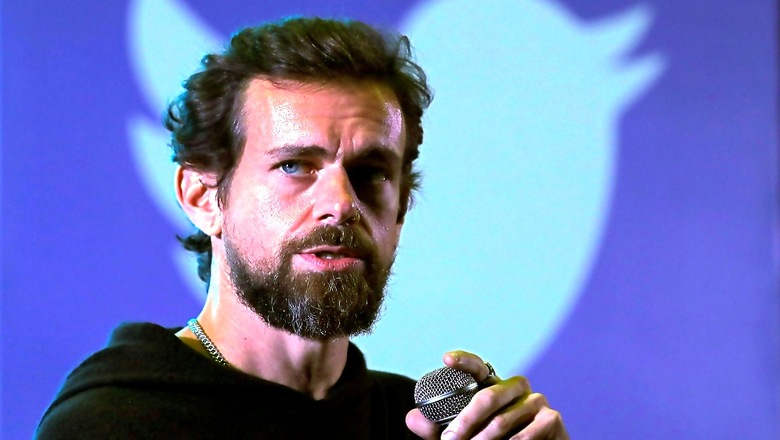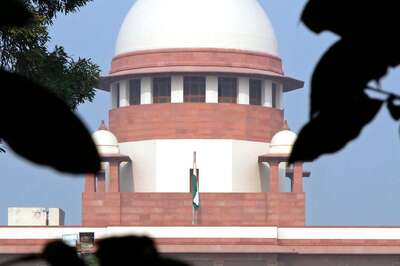
views
For a company that has changed the way we consume news and information, engage with institutions and individuals, and express ourselves through words, images, and videos, Twitter India is displaying an arrogance that, in the world’s largest democracy, stands on little but virtue-signalling. Its May 27, 2021 statement released at 1:04 pm is paved with good intentions that lead to regulatory hell.
The three-month extension sought by the US-based company to implement the new rules, drafted by a legitimately-elected Indian government, is fair; the government should accept it. Beyond that, if the ideologically driven and politically influencing executives of Twitter, in India as well as in its San Francisco headquarters, think they can hide behind the ‘free speech’ bogey and are powerful enough to not follow sovereign laws, in this case in India but could easily be across the world, they are mistaken.
The texture of the Twitter statement uses the idea of public interest and offers it to the Indian government and consumers alike: “Twitter is deeply committed to the people of India. Our service has proven vital for the public conversation and a source of support for people during the pandemic. To keep our service available, we will strive to comply with applicable law in India. But, just as we do around the world, we will continue to be strictly guided by principles of transparency, a commitment to empowering every voice on the service, and protecting freedom of expression and privacy under the rule of law.”
Here’s what’s wrong with this stance:
* First, the concern for and its commitment to the “people of India” is heartening. As is the service being a source of support during the pandemic. Nobody is arguing against it. But that’s evading the primary issue. This argument is a strawman that does not answer the issue at hand and heads in a different direction. The issue: is Twitter a platform or a publisher? If it is a platform, why is it behaving like a publisher—and seeking the protections that come from being a platform?
* Second, by saying it will “strive to comply with applicable law,” it is doing us no favour. In a democracy, this is the bare minimum regulatory requirement: You breach the law, you face the law. Further, you don’t “strive to comply” with laws—you simply comply.
* Third, it says that its take on the law notwithstanding, it will be guided by its actions across the world. Such a statement coming from the foreign ministers of sovereign nations is routine; coming from a private and listed company, it jars. This stance is an amplified arrogance that has given Twitter executives and Board members a sense of imagining that they are not a company called Twitter but indeed, the Republic of Twitter. It imagines that its sense of freedom of expression and privacy have greater weight than legitimate governments and nations tasked with ensuring those freedoms.
The statement doesn’t end there. Its virtue-signalling continues: “Right now, we are concerned by recent events regarding our employees in India and the potential threat to freedom of expression for the people we serve. We, alongside many in civil society in India and around the world, have concerns with regards to the use of intimidation tactics by the police in response to enforcement of our global Terms of Service, as well as with core elements of the new IT rules. We plan to advocate for changes to elements of these regulations that inhibit free, open public conversation. We will continue our constructive dialogue with the Indian government and believe it is critical to adopt a collaborative approach. It is the collective responsibility of elected officials, industry, and civil society to safeguard the interests of the public. We’re particularly concerned about the requirement to make an individual (the compliance officer) criminally liable for content on the platform, the requirements for proactive monitoring, and the blanket authority to seek information about our customers. This represents dangerous overreach that is inconsistent with open, democratic principles.”
There is so much wrong with this:
* First, it mixes the regulatory action taken by the government for potential wrong-doing by the company with freedom of expression, an idea everyone in India supports. Lost between the two is the regulatory breach, if any.
* Second, it threatens to use civil society to push its private agenda. Twitter imagines that its “global terms of service” are placed higher than regulations drafted by the Government of India. For a company that has such a scale, access to so many ideas, and can pay for the best lawyers and advisers from across the world, this is a mix of misplaced naïveté and regulatory haughtiness.
* Third, it plans to advocate changes to the regulations, have a dialogue with the government, and indeed collaborate with it. This is a perfectly fine and an absolutely valid response. This is a response in tune with the principles of democracy. The government must hear them. But to say Twitter will engage to change a law while not following it today is out of tune, out of synch, and outlandish.
* Fourth, Twitter’s concern to make the company’s compliance officer criminally liable for content on the platform is valid. This is a problem with Indian lawmaking. This needs to end. But it is not—repeat not—a “dangerous overreach” or “inconsistent with open, democratic principles.” The rule (not law) has been created under a law. As in all democracies, it can be challenged in a court, or pushed by the people through legislations. Until then, it needs to be followed.
As consumers, we love Twitter. It does an important service of carrying on multiple conversations and infinite engagements. But like all other companies and entities that function within all democracies, it needs to fall in line. The quicker it does so, the better for all of us, the company, the users, and the governments. The Republic of Twitter needs to give in to the Government of India—not the other way round.
This article was first published on ORF.
Read all the Latest News, Breaking News and Coronavirus News here. Follow us on Facebook, Twitter and Telegram.




















Comments
0 comment